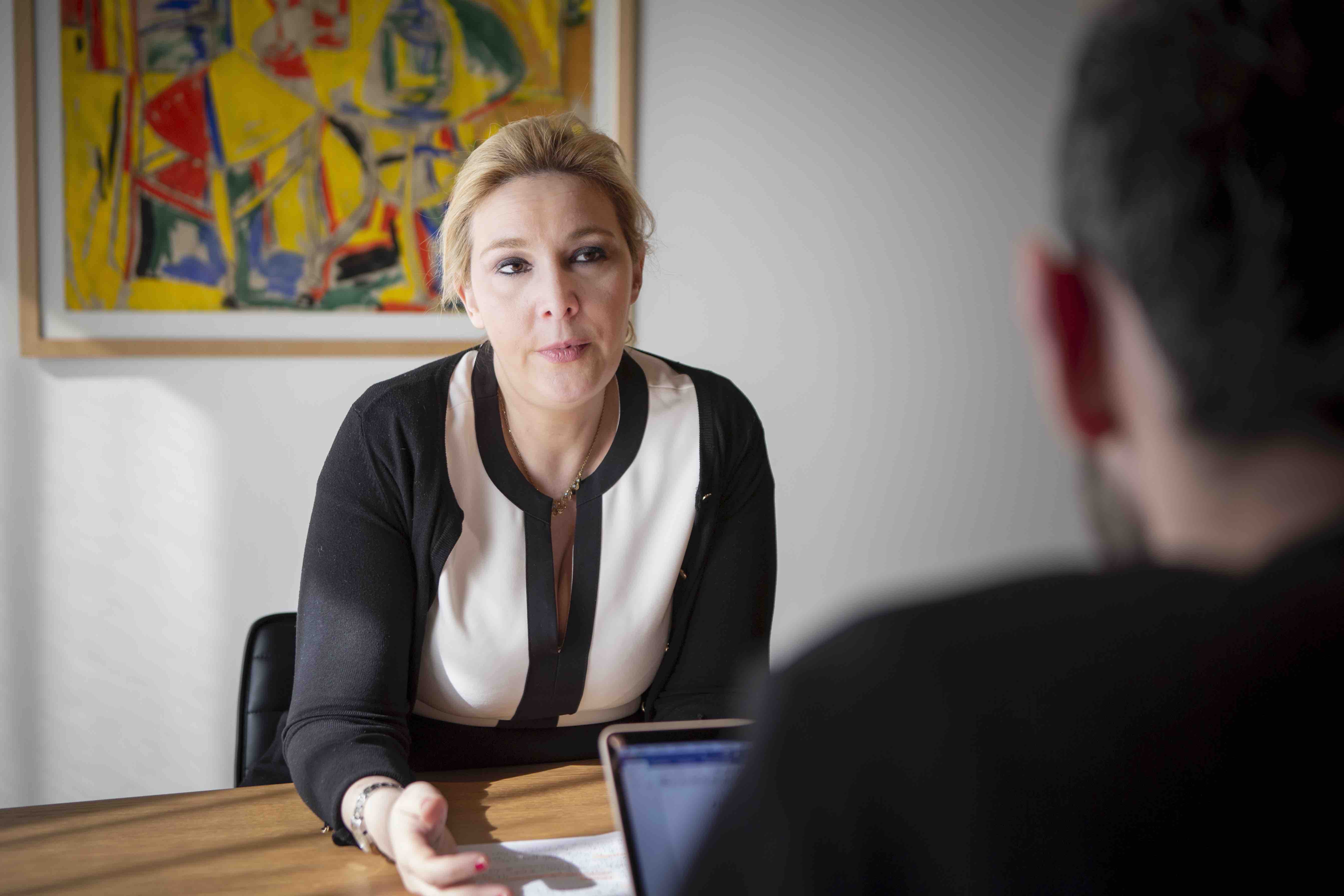Expert interview: inheritance under the spotlight
Estate planning is no easy thing, whether for the person organising their affairs or for those close to them. Yet, it is an essential step in preventing any family conflict that may arise. It is also a way of protecting and maintaining assets accrued over a lifetime. We met with Adélaïde Mercier, Senior wealth planner at BIL, to speak about the topic.
Inheritance is a sensitive topic. How should we approach it with our loved ones and prevent family conflict?
It is indeed a sensitive situation, in which emotions become intertwined with financial and wealth-related concerns. Despite this, the best thing to do is to begin to plan or at least get the ball rolling as soon as possible.
To start with, the best thing to do is to speak with a wealth professional, who will offer an impartial perspective on what is an emotional situation. They will be able to objectively address the legal and tax implications of the decisions you wish to make. This neutrality allows any conflicts of interest between heirs to be prevented or any favouritism to be avoided that might emerge and lead to family rifts when assets are transferred. This adviser may then sometimes even meet all of the family members involved.
A decision must be made as to how the assets will be transferred. The choice is thus: either wait until death, or take earlier action by gifting assets.
When we decide to begin planning our estate, where should we start?
I would say that the process entails four preparatory steps. First of all, it is important to review what assets you have ; this step is crucial. Next, you must decide to whom you wish to transfer your assets (your heirs or legatees) if you do not have children. Then, a decision must be made as to how the assets will be transferred. The choice is thus: either wait until death, or take earlier action by gifting assets.
Finally, you must make a detailed assessment of what you will need to support yourself. With life expectancy ever on the increase, this aspect should not be overlooked, as relinquishing all of your wealth would prevent you from being able to cover the cost of a retirement home, for example.
Estate planning is also a way of reducing associated costs. Can we speak more about this point?
Of course, but before I answer you, I ought to make clear that the type of assets must be established first. The benefits do indeed vary depending on whether we are transferring movable or immovable property. It therefore depends on the type of asset as to whether it is a better idea to wait until the person’s death or to plan to transfer this asset earlier.
I want to stress that these points apply for Luxembourg. In the case of cross-border asset transfers, a different process may apply and other variables may need to be considered.
When property is gifted, the involvement of a notary is compulsory. This notarised deed carries a cost, as gift tax ranges from 1.8% to 14.4%.
When property is gifted, the involvement of a notary is compulsory. This notarised deed carries a cost, as gift tax ranges from 1.8% to 14.4% depending on the donee (direct heirs or otherwise). In addition to gift tax, a transcription fee of 1.1% also applies. However, for direct heirs, inheritance is tax-free if you wait until you die.
At present, if you give full ownership of movable property (e.g. jewellery, money or a securities portfolio) in Luxembourg, this gift is tax-exempt provided that the person gifting it lives for one year after it is gifted. This also applies for inheritance to direct descendants, while for collateral descendants (nieces, nephews, third parties) inheritance may incur tax of up to 48%. Gifting movable property may therefore be more advantageous than bequeathing it, depending on the donee.
There is one exception in Luxembourg, however; if ownership is divided, i.e. if the bare ownership of something is given while the usufruct is retained (an equity portfolio, for example), you must first go to a notary in Luxembourg and the gift will be taxed at between 1.8% and 14.4%, as in the case of real estate mentioned earlier.
What are the pros and cons of a gift?
The most obvious benefit of gifting assets is that it allows you to carefully plan how you want to transfer your wealth in your own time. The donor rules out any unknowns by transferring a given item to a given person. As we have just seen, gifting also allows you to reduce the cost of a transfer in certain specific cases, and particularly in the case of inheritance awarded to collateral descendants.
In terms of cons, I would point out that once we have given something away it is no longer ours. Almost all civil codes stipulate that a gift is irrevocable, although there are a few exceptions that only apply to spouses. Except in the case of a gift whereby you retain the usufruct, the donor may not receive any profit from the asset once it has been given away. You must therefore be completely sure that you no longer need it. Despite everything, we can of course mitigate this constraint by placing conditions on gifts. For example, we may decide to forbid the donee from selling what they have been gifted. These conditions apply for gifts given under private deed (non-notarised) and for gifts officiated by a notary. If these conditions are breached, the asset will be returned to the donor.

Writing a will is yet another approach to asset transfer. What is there to say on the topic? In what circumstances is it recommended?
The advantage of writing a will is the ability to plan how all of one’s estate is transferred to the persons chosen. The law indicates, of course, that there are compulsory heirs (children), but writing a will makes it possible to give certain assets to certain children.
Unlike in the case of a gift, the downside is that testamentary dispositions can be adjusted. A will does not prevent joint ownership among a number of heirs. It is therefore entirely possible to supplement a will with gift strategies.
There are three forms of will : a holographic will, made under private deed, an authentic will, whereby a notary is present, and finally the mystic will, which is a combination of the two, in that it is made under private deed and then entrusted to a notary.
In Luxembourg it’s possible to make hand-to-hand or indirect gifts, which may be tax-exempt if the donor lives for one year after the gift is made.
Are there any aspects specific to Luxembourg that we should be aware of? If so, what are they?
As we have mentioned, in Luxembourg it’s possible to make hand-to-hand or indirect gifts (from one account to another), which may be tax-exempt. This is not the case in all countries. The donor needs only to satisfy the one-year survival requirement for the gift to be tax-exempt. In the Grand Duchy, there is also an exemption from inheritance tax for spouses and direct descendants, unless one child is favoured in particular. Compared with neighbouring countries, the percentage of estate transfers to third parties is relatively low (48%).
Which professionals should we turn to for assistance with estate planning?
The three key figures to consult are notaries, wealth engineers and solicitors. Notaries are key when authentic documents are required, i.e. anything that does not relate to gifts under private deed, but they may also provide guidance prior to the administrative proceedings.
The other two parties are not authorised to produce authentic deeds. They only provide an advisory service, which may be very helpful when it comes to avoiding the conflicts that we mentioned at the start of our interview.


 Mortgage
Mortgage Personal loan
Personal loan Savings
Savings